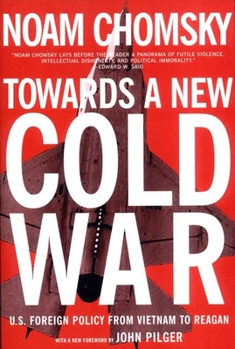Towards a New Cold War: U.S. Foreign Policy from Vietnam to Reagan
Select Format
Select Condition 
Book Overview
With the same uncompromising style that characterized his breakthrough, Vietnam-era writings, Toward a New Cold War extends Chomsky's critique of U.S. foreign policy through the early 1970s to Ronald Reagan's first term. Expanding on themes such as the cozy relationship of intellectuals to the state and American adventurism after World War II, Chomsky goes on to examine the way that U.S. policymakers set about the task of rewriting the horrible history of involvement in Indochina and turned their attention more squarely on the Middle East and Central America. Chomsky also assesses U.S. oil strategy and the Israeli-Palestinian conflict, dissects the first volume of Kissinger's memoirs, issues an urgent call to stem the bloodshed in then-unknown East Timor and, in the title essay, marks the increased posture of confrontation and rearmament under presidents Carter and Reagan that signaled the end of d tente with the Soviet Union.
Featuring a new foreword by internationally acclaimed journalist John Pilger, this is the fifth in a series of Chomsky's classic political works reissued by The New Press. The others are American Power and the New Mandarins, For Reasons of State, Problems of Knowledge and Freedom, and Objectivity and Liberal Scholarship.






